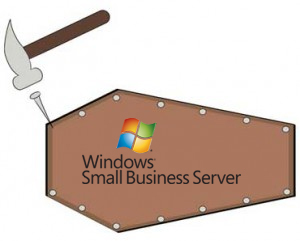As you may or may not know, the end-of-life date of Windows Small Business Server 2003 is July 14, 2015. This means Microsoft will be terminating services for the line, services that provide crucial security updates and patches. This termination will be akin to the Windows XP termination this past April: XP can still run on desktops, but the product is off the shelf both commercially and in terms of Microsoft’s internal support; vulnerable, it is a security disaster waiting to happen and generally will not pass regulations. The problems in upgrading a server are similar but far bigger, and the popular mad-dash-switch strategy is not feasible for companies relying heavily on fully-operational 24/7 server activity. The whole infrastructure of a system, in many cases carefully built up over years, needs to be reworked – and this takes time, time that can be born only out of ample foresight. Though the end-of-life for the Small Business Server 2003 is a year away, the question must be asked now: what are we going to do about upgrading?
 (Image courtesy of blog.zensoftware.co.uk)
(Image courtesy of blog.zensoftware.co.uk)

 (Image courtesy of blog.zensoftware.co.uk)
(Image courtesy of blog.zensoftware.co.uk)  Ylastic is a great web based tool that allows IT Technicians to manage all of the components of AWS (Amazon Web Services) from either a web browser or mobile device, including iPhone and Google’s Android platform.
Ylastic is a great web based tool that allows IT Technicians to manage all of the components of AWS (Amazon Web Services) from either a web browser or mobile device, including iPhone and Google’s Android platform.
